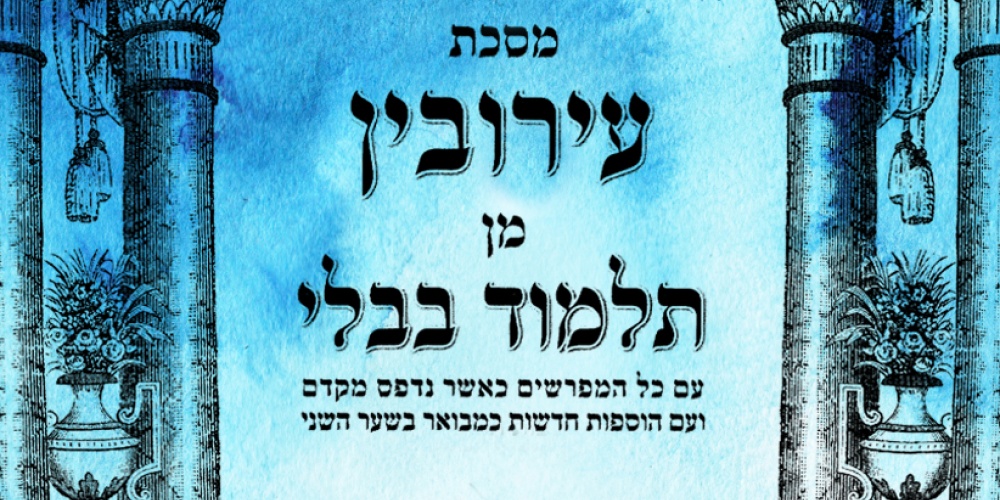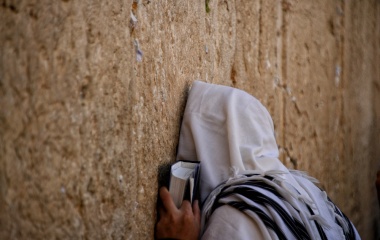
I often ask my high school students what they consider the most difficult mitzvah to observe. The two most common answers I receive are keeping Shabbat and keeping kosher. Considering that I teach in a communal high school where the overwhelming majority of the students are not shomer Shabbat and few are strictly kosher, this is pretty much what one would expect to hear. From the outside looking in, these mitzvot do appear most difficult—and for one not brought up keeping these mitzvot, they are. For this reason alone, I would never advise someone to stop violating Shabbat cold turkey. The chances of such a draconian change having long-term impact on future behavior are small indeed.
But for an “insider”, it is much different. For those who grew up and remain observant, the mitzvot between man and G-d are second nature. While we might struggle mightily to diet, avoiding that cheeseburger requires little—more like no—effort. As for Shabbat, I ask my students to survey 100 shomer Shabbat people, asking them their favourite day of the week. If fewer than 95 say it’s Shabbat, I promise to treat them to lunch—kosher, of course. Shabbat is one of G-d’s great gifts to man. And what a beautiful gift it is! Even the more difficult mitzvah of daily davening is one no observant Jew would ever think of skipping.
It is the mitzvot between man and man that are much more difficult. Refraining from gossip, not bearing a grudge, treating all fairly, meticulously paying our taxes—now, these are not easy.
Even more difficult are mitzvot between man and himself, mitzvot that require development of character. Developing a sense of humility, controlling our anger, toning down our material desires—that requires really, really hard work.
This brings us to what I believe is one of the hardest of all Jewish laws to properly observe. It is found in the Shulchan Aruch in the discussion of the “Laws of Partners”. In discussing the budget of a town, the Shulchan Aruch writes as follows: “The residents of a town can force one another (even the minority can force the majority) to put up a wall with gates and a bolt for the town, and to build a synagogue and to buy a book of the Torah, Prophets and Writings so that anyone from the community may read from them” (Choshen Mishpat 163:1). Townspeople must first and foremost invest in safety, security, a house of worship and in a proper library—caring for both our physical and spiritual needs.
The RaMah then adds: “And the residents of the town can force one another to provide hospitality for guests, distribute charity to them and to contribute to the charity container.” A city that does not help the poor is not a place one should reside.
“And with a matter in which the community is not able to be in agreement, all the heads of households that pay taxes should convene and accept upon themselves that each one proclaim his opinion…and [then] go according to the majority”.
As is inevitable, different people will have differing ideas and differing priorities on where to spend available funding. In such a case, the Shulchan Aruch rules that all who pay taxes—and only those who pay taxes can have representation—would debate the issues and vote on the matter, with the majority ruling. There is nothing particularly novel about this, though I imagine not all would expect to see this in a 16th century code of Jewish law. And the fact that each person is given a chance to express their opinion uninterrupted might be news to many today.
However, I left out two very important words in the ellipsis above. Yes, all may express their opinion, but they must do so “leshem shamayim”, for the sake of heaven. All are entitled to a vote, but they must vote for the sake of heaven.
This means that we must put the needs of the community ahead of our own, that we cast our vote not by what is best for us personally, but what is best for the community at large. The halacha demands that one votes for what is best for all, not what is best for one’s self.
I can think of few halachot that are so “out of touch” with how the average person thinks. And I can think of few halachot the proper observance of which would so benefit so many. In an early application of game theory, if all voted for what is best for all, all would be better off.
Inevitably, people can and will disagree as to what is best for the community at large. And for that, we encourage robust debate, in which each person is free to express an opinion—“for the sake of heaven”.
Voting for the sake of heaven means the recognition that there are other legitimate views than one’s own. Listening to what others have to say helps refine our own views, even if we are not convinced to change our own.
The Talmud notes that Beit Shammai were “sharper” than the Beit Hillel (Yevamot 14a). Yet the Gemara explains that we follow the views of Beit Hillel because “they were agreeable and forbearing, and they would teach their views and the views of Beit Shammai. Moreover, they taught the view of Beit Shammai before expressing their own view” (Eiruvin 13b).
This was no reward for being nice. It reflects a deep insight into judicial competency. When one is open to hearing the view of others, one’s own views will be less prone to error. In the first chapter of the very first tractate of the Mishna historically recorded, that of masechet Eduyot, the Mishna records three instances where, after hearing the arguments of Beit Shammai, the Beit Hillel changed their mind and taught according to the opinion of Beit Shammai. Never do we find a case of Beit Shammai changing their view after hearing the view of Beit Hillel. Acting for the sake of heaven requires actively listening to man.
Exercising one’s right to vote is an integral part of ensuring a free society, a great privilege, and a great responsibility. It should come as no surprise that the halacha has something to say about how one must cast a ballot. While the election laws of secular democracies focus on eligibility to vote, logistical details, requirements needed to get on the ballot, etc., Jewish law—while not oblivious to the above—focuses elsewhere.



